The Don Rendell / Ian Carr Quintet - Change Is (1969/2018)
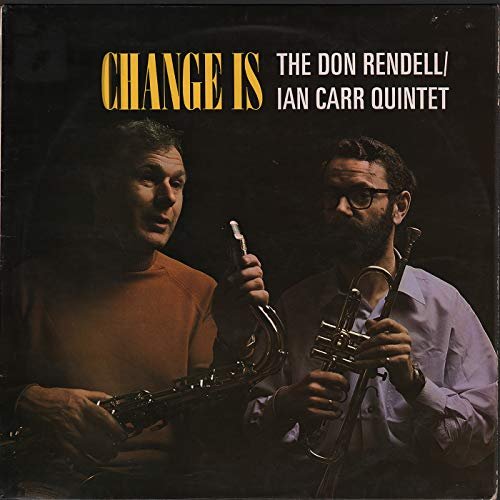
Artist: The Don Rendell / Ian Carr Quintet
Title: Change Is
Year Of Release: 1969/2018
Label: Decca (UMO)
Genre: Jazz
Quality: 320 kbps | FLAC (tracks)
Total Time: 00:47:00
Total Size: 109 mb | 272 mb
WebSite: Album Preview
Tracklist:Title: Change Is
Year Of Release: 1969/2018
Label: Decca (UMO)
Genre: Jazz
Quality: 320 kbps | FLAC (tracks)
Total Time: 00:47:00
Total Size: 109 mb | 272 mb
WebSite: Album Preview
01. Elastic Dream
02. One Green Eye
03. Boy, Dog And Carrot
04. Cold Mountain
05. Black Hair
06. Mirage
Personnel:
Don Rendell - tenor saxophone, soprano saxophone, flute
Ian Carrvtrumpet, flugelhorn
Michael Garrick - piano,
Mike Pyne - piano (on track 2)
Dave Green - bass
Jeff Clyne - bass (on track 1)
Trevor Tomkins - drums
Guy Warren - talking drum, maracas (on track 1, 3)
Many have tried - and failed - to reissue these albums by legitimate means. However, two decades since our initial approach, Universal Music has gone to great lengths to research their vast archives, and we have finally managed to succeed.
The band played together for seven years and during this fruitful time they made a plethora of deeply melodic, post-bop British jazz compositions that later on took influences from Indo and more spiritually guided jazz. Produced by the influential Denis Preston and recorded at his Lansdowne Studios in London, the band was primarily made up of saxophonist Don Rendell, trumpeter/composer Ian Carr, and pianist/composer Michael Garrick. This is UK jazz at its absolute finest, and the quality of our box set pays testament to that.
"Last album of a quintet that was definitely maturing quickly and developing some of the more innovative post-bop jazz around, but whatever extra outside help was brought in to expand their musical soundscapes and explorations were also what killed the group. If Pyne and Clyne were most welcome by the whole group (Mike on the piano, and Jeff on the second bass, both having subbed in the group for certain gigs), and so was Robinson on sax, with his first ever studio-session. Where the problem arose was with Guy Warren, with his very different sense of percussions, which was obviously dictated by his Ghanaian origins. The latter was brought in by trumpet player Ian Carr, and it didn’t sit too well with the other founding member Rendell, who was older and probably a little less adventurous than his younger colleague. Tensions arose, causing Carr to found Nucleus, a logical but rockier continuation of what he was trying to develop here.
Changes are rather evident with the opening Elastic Dream, which features an African intro, followed by Clyne bowed-contrabass and Green’s usual bass. Once the theme gets there, you can easily recognise a Nucleus theme of their Elastic Rock debut album, only not as “rocky”. This included with Robinson’s clarinet and Warren’s unexpected drum outbreaks, segueing into One Green Eye that will set the direction points definitely into improvised and dissonant territories, but rest assured nothing excruciating at all. The following almost 14-mins Boy, Dog And Carrot (don’t ask ;o))) is definitely more standard-jazz, even if Garrick uses some harpsichord in its second part, once the track changed dramatically into a slightly more raga-feel. On the flipside, Michael Garrick counters with two compositions that also delve into Indian or Mid-Eastern influenced, notably Cold Mountains (Garrick will also use it on his own solo album of the same name), when the tempo picks up on the piano, coming close to Brubeck’s Blue Rondo passage, and ends-up in a drums than bass solo, before slowly picking up with Michael’s piano. Black Hair sees Rendell on flute, but it is rather anecdotic, especially when leaving the floor for the excellent Mirage, a fitting DCQ outro, where Carr’s trumpet, Rendell’s sax and Garrick’s piano give you one last moment of bravura.
Well however good this last Change Is might be, it doesn’t beat their second album Dusk Fire’s excellence, but it is well in the line of Phase III and their Live album. Soooo, one shouldn’t be sad that bthe RCQ parted, because it allowed some of its member to create some fantastic music such as Carr with his Nucleus venture, but Garrick as well, with his early-70’s sextet adventures with the delicious Winstone behind the mike. Definitely worth the detour, like most of RCQ’s albums."
The band played together for seven years and during this fruitful time they made a plethora of deeply melodic, post-bop British jazz compositions that later on took influences from Indo and more spiritually guided jazz. Produced by the influential Denis Preston and recorded at his Lansdowne Studios in London, the band was primarily made up of saxophonist Don Rendell, trumpeter/composer Ian Carr, and pianist/composer Michael Garrick. This is UK jazz at its absolute finest, and the quality of our box set pays testament to that.
"Last album of a quintet that was definitely maturing quickly and developing some of the more innovative post-bop jazz around, but whatever extra outside help was brought in to expand their musical soundscapes and explorations were also what killed the group. If Pyne and Clyne were most welcome by the whole group (Mike on the piano, and Jeff on the second bass, both having subbed in the group for certain gigs), and so was Robinson on sax, with his first ever studio-session. Where the problem arose was with Guy Warren, with his very different sense of percussions, which was obviously dictated by his Ghanaian origins. The latter was brought in by trumpet player Ian Carr, and it didn’t sit too well with the other founding member Rendell, who was older and probably a little less adventurous than his younger colleague. Tensions arose, causing Carr to found Nucleus, a logical but rockier continuation of what he was trying to develop here.
Changes are rather evident with the opening Elastic Dream, which features an African intro, followed by Clyne bowed-contrabass and Green’s usual bass. Once the theme gets there, you can easily recognise a Nucleus theme of their Elastic Rock debut album, only not as “rocky”. This included with Robinson’s clarinet and Warren’s unexpected drum outbreaks, segueing into One Green Eye that will set the direction points definitely into improvised and dissonant territories, but rest assured nothing excruciating at all. The following almost 14-mins Boy, Dog And Carrot (don’t ask ;o))) is definitely more standard-jazz, even if Garrick uses some harpsichord in its second part, once the track changed dramatically into a slightly more raga-feel. On the flipside, Michael Garrick counters with two compositions that also delve into Indian or Mid-Eastern influenced, notably Cold Mountains (Garrick will also use it on his own solo album of the same name), when the tempo picks up on the piano, coming close to Brubeck’s Blue Rondo passage, and ends-up in a drums than bass solo, before slowly picking up with Michael’s piano. Black Hair sees Rendell on flute, but it is rather anecdotic, especially when leaving the floor for the excellent Mirage, a fitting DCQ outro, where Carr’s trumpet, Rendell’s sax and Garrick’s piano give you one last moment of bravura.
Well however good this last Change Is might be, it doesn’t beat their second album Dusk Fire’s excellence, but it is well in the line of Phase III and their Live album. Soooo, one shouldn’t be sad that bthe RCQ parted, because it allowed some of its member to create some fantastic music such as Carr with his Nucleus venture, but Garrick as well, with his early-70’s sextet adventures with the delicious Winstone behind the mike. Definitely worth the detour, like most of RCQ’s albums."
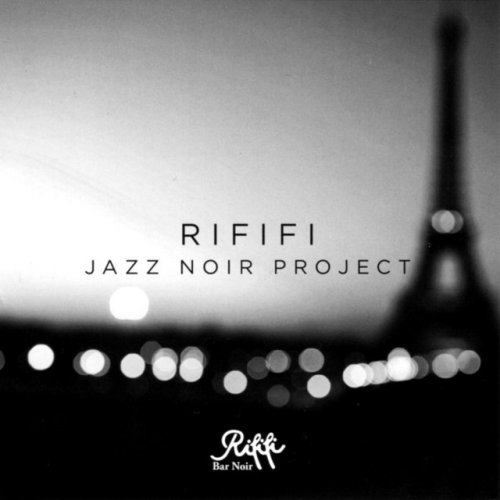
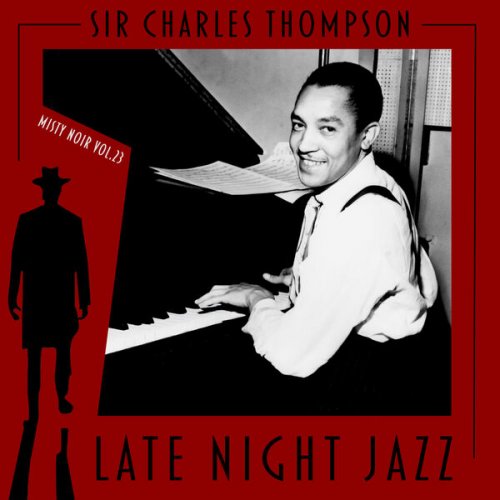
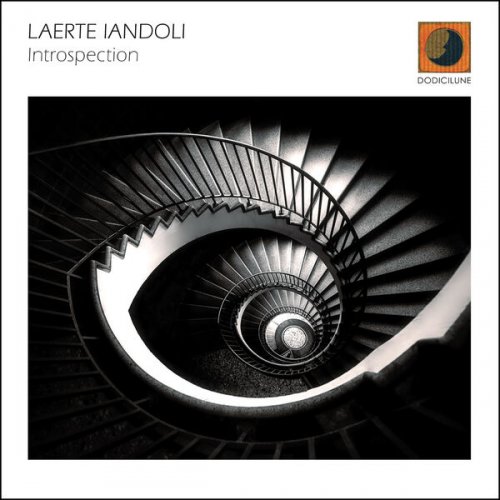
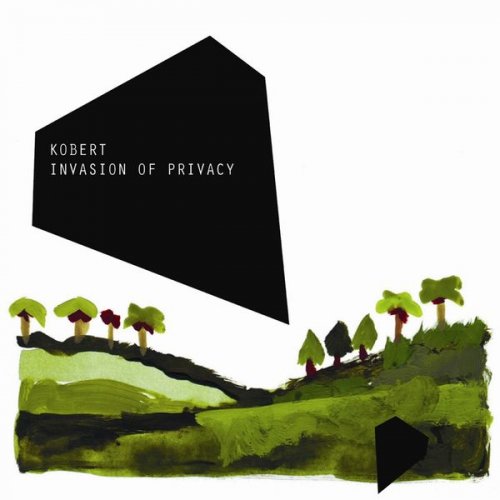

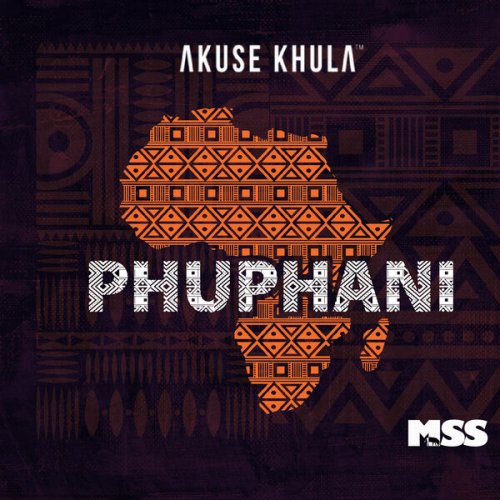
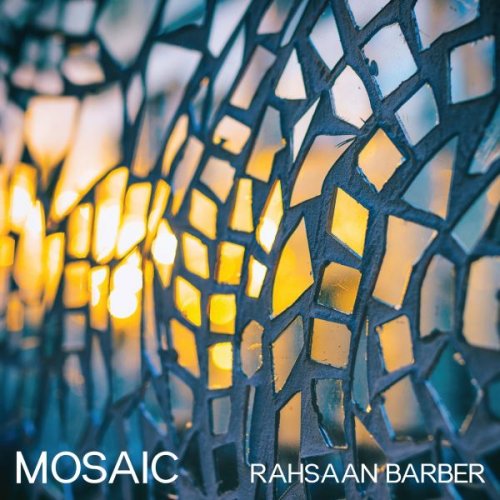
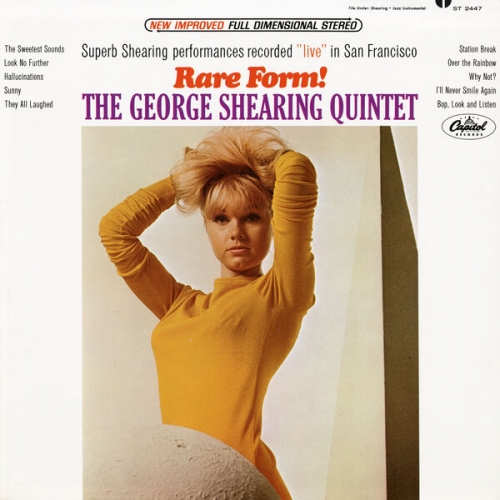
![Rick Braun - Intimate Secrets (1992) [CDRip] Rick Braun - Intimate Secrets (1992) [CDRip]](https://www.dibpic.com/uploads/posts/2026-03/1772427179_5.jpg)